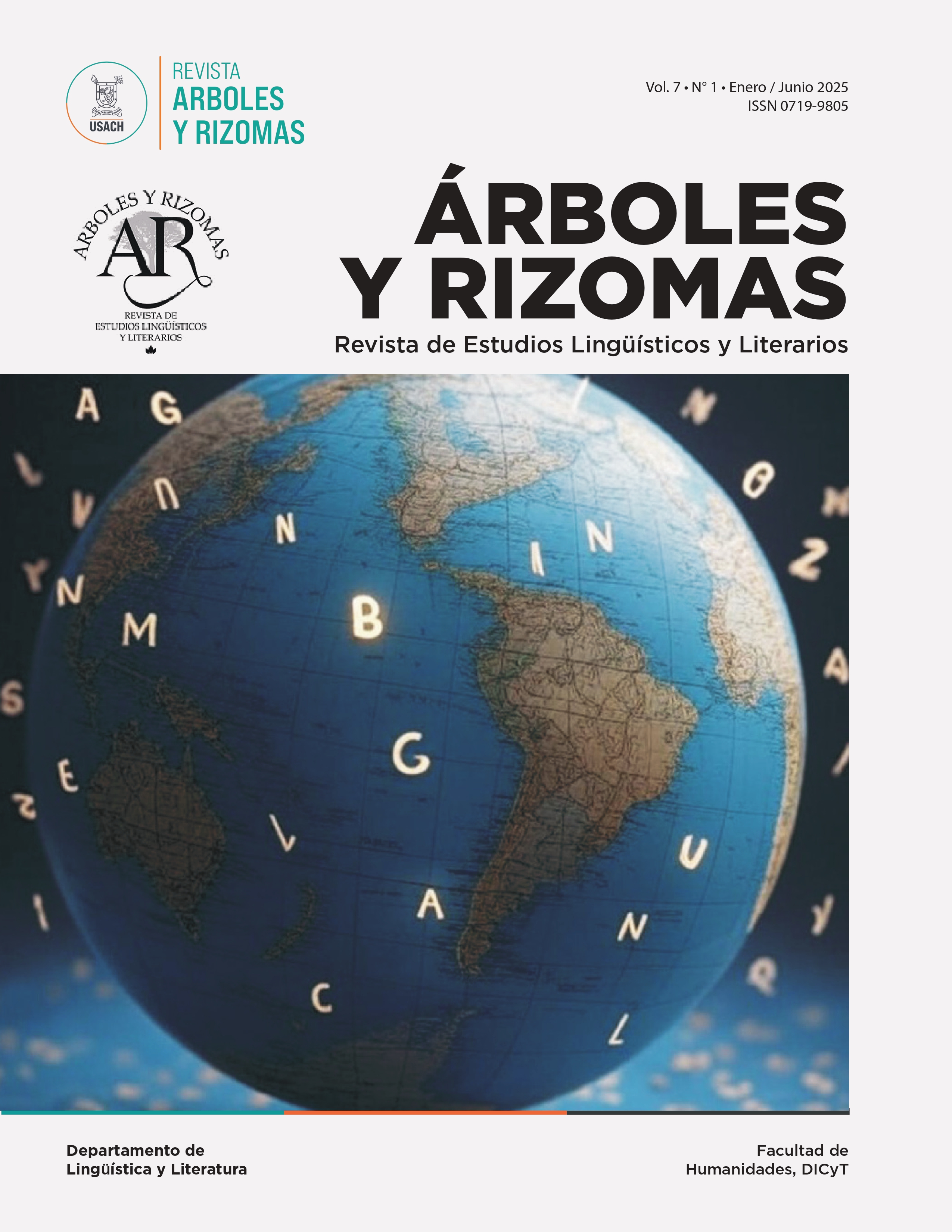Reinterpreting English as a Lingua Franca in Latin America
DOI:
https://doi.org/10.35588/ayr.v7i1.7435Keywords:
English as a lingua franca, Latin America, resignification, knowledge productionAbstract
This presentation offers a brief overview of knowledge production on English as a Lingua Franca (ELF) in the Latin American context, highlighting that the growing interest in the topic has been accompanied by efforts to reinterpret the role of the English language (EL) from critical, local, and decolonial perspectives. In contrast to earlier perceptions of limited Latin American engagement with ELF studies (Jenkins et al., 2011), it is possible to observe now a situated and politically engaged interpretation of the concept by some Latin American researchers. This dossier aims to give visibility to this body of knowledge emerging from the Global South. Drawing on the contributions of these scholars, the articles gathered here offer reflections on the meanings of the EL in contexts shaped by historical inequalities and contemporary challenges.
Downloads
References
de Mejía, A. (2006). Bilingual Education in Colombia: Towards a Recognition of Languages, Cultures and Identities. Colombian Applied Linguistics Journal, (8), 152-168. https://www.redalyc.org/pdf/3057/305726654008.pdf
Duboc, A.P., & Siqueira, D.S. (2020). ELF feito no Brasil: expanding theoretical notions, reframing educational policies. Status Quaestionis, 1, 297-331. https://doi.org/10.13133/2239-1983/17135
Gimenez, T., Calvo, L.C. S., & El Kadri, M.S. (Eds.). (2011). Inglês como lingua franca: ensino-aprendizagem e formação de professores. Pontes.
Gimenez, T., El Kadri, M. & Calvo, L.C.S. (2018) English as a Lingua Franca in teacher education: a Brazilian perspective. De Gruyter.
Gómez, M. M. (2017). Review and Analysis of the Colombian Foreign Language Bilingualism Policies and Plans. HOW, 24(1), 139–156. https://doi.org/10.19183/how.24.1.343
Guerrero, C. H. (2008). Bilingual Colombia: What does It Mean to Be Bilingual within the Framework of the National Plan of Bilingualism?. Profile: Issues in Teachers’ Professional Development, 10(1), 27–45.https://revistas.unal.edu.co/index.php/profile/article/view/10563
Jenkins, J. (1998). Which pronunciation norms and models for English as an international language? ELT Journal, 52(2), 119-126.
Jenkins, J., Cogo, A., & Dewey, M. (2011). Review of developments in research into English as a lingua franca. Language Teaching, 44(3), 281–315. https://doi.org/10.1017/S0261444811000115
Jenkins, J. (2015) Repositioning English and multilingualism in English as a Lingua Franca. Englishes in Practice, 2(3), 49-85. https://doi.org/10.1515/eip-2015-0003
Kubota, R. (2014) The Multi/Plural Turn, Postcolonial Theory, and Neoliberal Multiculturalism: Complicities and Implications for Applied Linguistics. Applied Linguistics, 37(4), 1-22. https://doi.org/10.1093/applin/amu045
Laitinen M. (2020). Empirical perspectives on English as a lingua franca (ELF) grammar. World Englishes, 39, 427–442. https://doi.org/10.1111/weng.12482
Ministério da Educação. (2018). Base Nacional Comum Curricular. basenacionalcomum.mec.gov.br/images/BNCC_EI_EF_110518_versaofinal_site.pdf
Morán-Panero, S., Martínez-Sánchez, M., & Ronzón-Montiel, G.J. (2024). English as a Lingua Franca in Latin American Education. De Gruyter.
O’Regan, J. P. (2014) English as a Lingua Franca: An Immanent Critique. Applied Linguistics, 35(5), 533–552. https://doi.org/10.1093/applin/amt045
Schmitz, J. R. (2012). “To ELF or not to ELF?” (English as a Lingua Franca): That’s the question for Applied Linguistics in a globalized world. Revista Brasileira de Linguística Aplicada, 12(2), 249-284. https://doi.org/10.1590/S1984-63982012000200003
Downloads
Submitted
2025-06-20Published
Issue
Section
License
Copyright (c) 2025 Telma Gimenez, Camila Haus, Jacyara Nô dos Santos

This work is licensed under a Creative Commons Attribution 4.0 International License.






